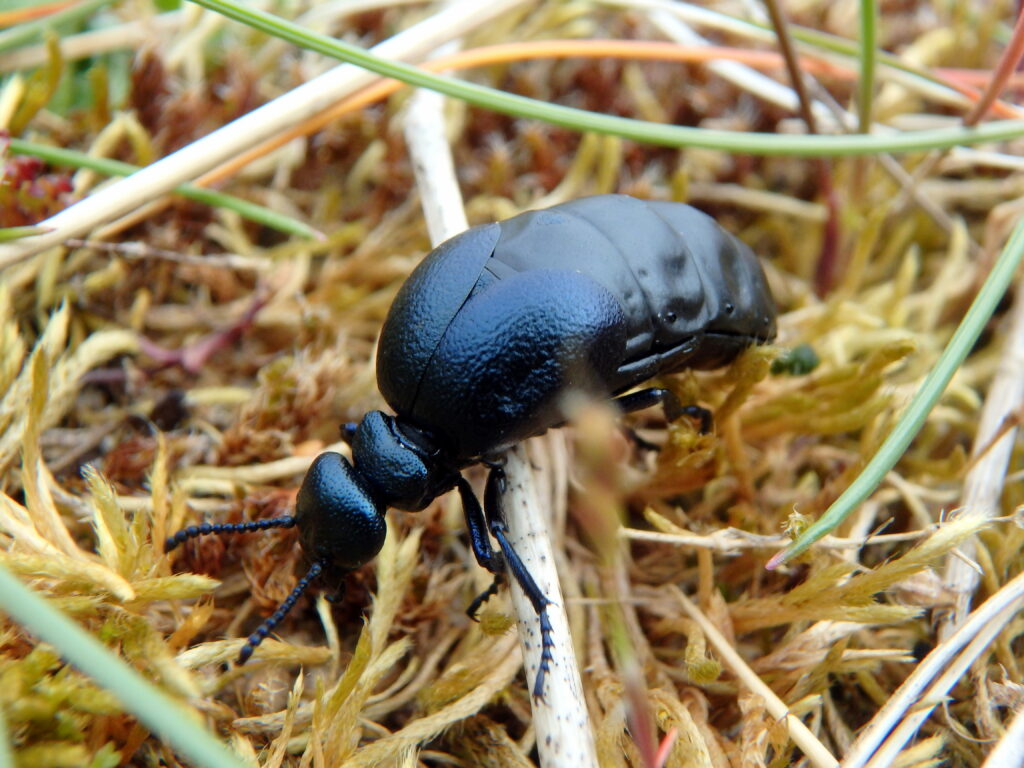A SCOTS beetle hunt has been launched by an England-based conservation trust for invertebrates as part of an environmental recovery programme.
Buglife based in Peterborough has introduced a new citizen project called the Scottish Oil Beetle Hunt as part of the Species on the Edge partnership programme.
Species on the Edge is a four-year programme for species recovery in Scotland that aims to take action for 37 species that are threatened and declining around Scotland’s coasts and the islands.

The organisations partnered together for the programme are Amphibian and Reptile Conservation (ARC), Bat Conservation Trust, Buglife, Bumblebee Conservation Trust, Butterfly Conservation.
The remaining organisations are NatureScot, Plantlife, and RSPB (The Royal Society for the Protection of Birds) Scotland with funding provided by The National Lottery Heritage Fund.
The trust is asking members of the public to be on the lookout for the Scottish Oil Beetle and record any sightings.
Oil beetles gain their namesake from exuding a yellowish oily substance from their legs when threatened and have been described as appearing as though they are wearing an ill-fitting waistcoat (in reference to their wing cases).
According to Buglife, Scottish records of oil beetles on iRecord more than doubled last year due to hunting and surveying conducted by the Species on the Edge team.
Over 100 records of the Short-necked Oil Beetle with many new sites discovered by the species were recorded.
It was also confirmed the Black Oil Beetle was from Scotland despite previous doubts and issues with misidentification.
Ranger Hayley Douglas found a Short-necked Oil Beetle on Tiree for the first time in 2023.
Tiree is the latest new island site for the species with populations found on North Uist in 2022, and Barra and Islay in 2021.
The Short-necked Oil Beetle was classed as “vulnerable” (at high risk of extinction) on the International Union for Conservation of Nature’s (IUCN) Red List.
Buglife said populations have declined due to the loss of flower-rich habitats in the countryside.
Declines in the population of wild bees have also impacted the oil beetle population as the species depend on bees for their survival as they are kleptoparasites (steal food from another species) and sneak into the hives to steal pollen and nectar.
Scotland, which has three of the five species in the UK (Black Oil Beetle, Violet Oil Beetle, and Short-necked Oil Beetle), has less oil beetle records than both England and Wales, which pushes forward the programme’s notion that the oil beetles are just under-recorded.
Sally Morris, Buglife Conservation Officer, explains: “Last year was great for oil beetles in Scotland, but we’re still far behind England and Wales for records – it’s time we catch up.
“Have you ever seen a shiny black beetle that may be an oil beetle? Please send us a photo and help us to learn more about these amazing beetles within Scotland.”
No prior knowledge is needed to participate in the hunt, everyone is encouraged to submit records using the iRecord app (with multiple photos if possible).
Scots can also send in details via email and Buglife encourage social media users to use #OilBeetleHunt to post what they find using the identification guide.
The Species on the Edge programme is also asking for volunteers to help search for Short-necked Oil Beetles in likely locations in the Hebrides from April to June.
Buglife welcomes any records, however they are particularly interested in records from Argyll and the Hebrides as these are the locations where Short-necked Oil Beetles are most likely to be found.